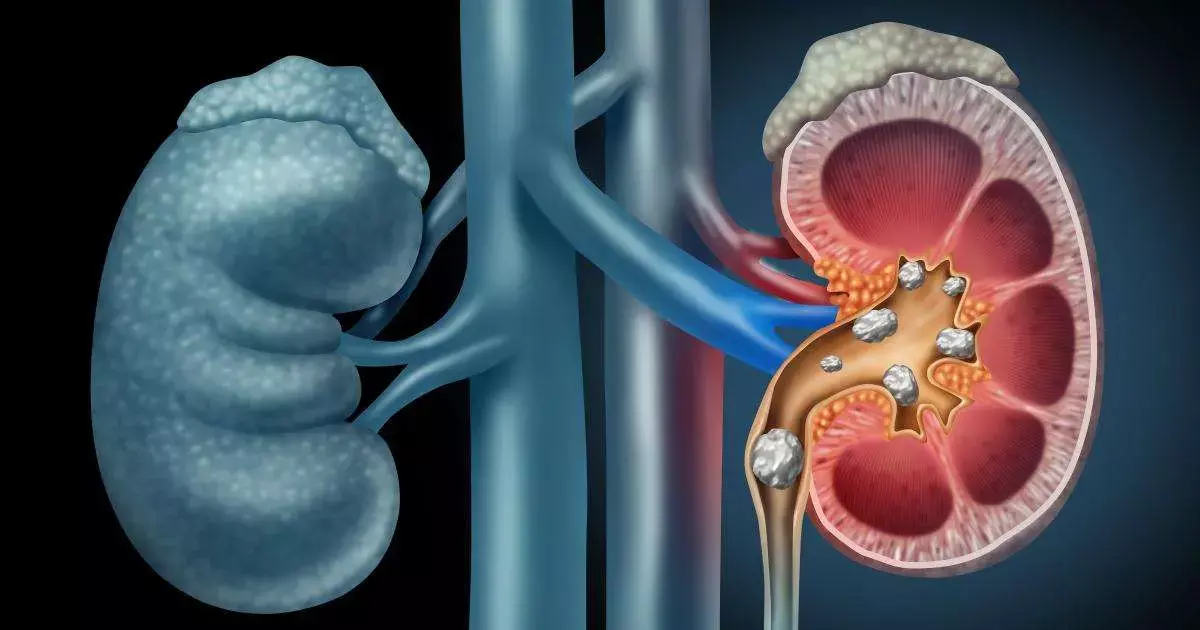- Home
- Medical news & Guidelines
- Anesthesiology
- Cardiology and CTVS
- Critical Care
- Dentistry
- Dermatology
- Diabetes and Endocrinology
- ENT
- Gastroenterology
- Medicine
- Nephrology
- Neurology
- Obstretics-Gynaecology
- Oncology
- Ophthalmology
- Orthopaedics
- Pediatrics-Neonatology
- Psychiatry
- Pulmonology
- Radiology
- Surgery
- Urology
- Laboratory Medicine
- Diet
- Nursing
- Paramedical
- Physiotherapy
- Health news
- Fact Check
- Bone Health Fact Check
- Brain Health Fact Check
- Cancer Related Fact Check
- Child Care Fact Check
- Dental and oral health fact check
- Diabetes and metabolic health fact check
- Diet and Nutrition Fact Check
- Eye and ENT Care Fact Check
- Fitness fact check
- Gut health fact check
- Heart health fact check
- Kidney health fact check
- Medical education fact check
- Men's health fact check
- Respiratory fact check
- Skin and hair care fact check
- Vaccine and Immunization fact check
- Women's health fact check
- AYUSH
- State News
- Andaman and Nicobar Islands
- Andhra Pradesh
- Arunachal Pradesh
- Assam
- Bihar
- Chandigarh
- Chattisgarh
- Dadra and Nagar Haveli
- Daman and Diu
- Delhi
- Goa
- Gujarat
- Haryana
- Himachal Pradesh
- Jammu & Kashmir
- Jharkhand
- Karnataka
- Kerala
- Ladakh
- Lakshadweep
- Madhya Pradesh
- Maharashtra
- Manipur
- Meghalaya
- Mizoram
- Nagaland
- Odisha
- Puducherry
- Punjab
- Rajasthan
- Sikkim
- Tamil Nadu
- Telangana
- Tripura
- Uttar Pradesh
- Uttrakhand
- West Bengal
- Medical Education
- Industry
Structured Problem Solving may promote fluid consumption for prevention of urinary stones: PUSH trial

Researchers have found that Structured Problem Solving (SPS) effectively promotes behavior change, enhancing fluid consumption in patients with a history of urinary stone disease. The study, part of the multicenter Prevention of Urinary Stones with Hydration (PUSH) randomized trial, underscores the importance of SPS in fostering patient autonomy and improving health outcomes. This study was published in BMC Nephrology by Peter P. Reese and colleagues.
Structured Problem Solving (SPS) is a patient-centered approach designed to facilitate behavior change through collaboration between coaches and participants. This method emphasizes participant autonomy, making it particularly suitable for interventions aimed at lifestyle modifications. The PUSH trial applied SPS to increase fluid intake in patients with low urine output, thereby aiming to prevent recurrent kidney stones.
The primary objective of the PUSH trial was to assess the effectiveness of SPS in promoting fluid consumption among individuals with a history of urinary stone disease. This article focuses on the design, implementation, and assessment of SPS within the trial, providing insights into the training and fidelity assessment of SPS coaches.
The PUSH trial randomized participants with a history of urinary stone disease and low urine output into two groups: a control group and an intervention group receiving a multicomponent intervention, including SPS. Key components of the SPS intervention involved training coaches to support participants in overcoming barriers to fluid consumption. The fidelity of the SPS implementation was rigorously assessed to ensure consistency and effectiveness.
During the initial conduct of the trial, SPS coaches encountered several challenges:
• Variable Participant Engagement: Coaches had to tailor their approaches to accommodate different levels of participant engagement.
• Balancing Rapport and Problem Solving: Maintaining a balance between building rapport and focusing on problem-solving was crucial for effective intervention.
• Role Clarity: Clear definition of the coaches' roles helped in managing their responsibilities and expectations.
• The trial enrolled participants and monitored their progress in increasing fluid intake.
• Coaches applied SPS techniques to help participants identify and overcome barriers to hydration.
• Despite facing implementation challenges, the coaches adapted their strategies to meet the specific needs of participants, thereby promoting better fluid consumption.
• The study involved individuals with a history of urinary stone disease and low urine output.
• Variable participant engagement required tailored coaching approaches.
• Coaches balanced rapport-building with problem-solving and maintained role clarity.
• SPS was successfully adapted for kidney stone prevention, overcoming several implementation barriers.
The implementation of SPS in the PUSH trial highlighted its potential to be adapted for other health behavior change settings, particularly in nephrology. The structured approach allowed coaches to effectively address participant-specific barriers, making it a valuable tool for clinical care interventions aimed at lifestyle modifications.
The study concluded that SPS is an effective method for promoting fluid consumption in patients with a history of urinary stone disease. The tools and strategies developed during the PUSH trial can be applied to other areas of clinical care, demonstrating the versatility and effectiveness of the SPS approach in fostering health behavior change.
Reference:
Dr Riya Dave has completed dentistry from Gujarat University in 2022. She is a dentist and accomplished medical and scientific writer known for her commitment to bridging the gap between clinical expertise and accessible healthcare information. She has been actively involved in writing blogs related to health and wellness.
Dr Kamal Kant Kohli-MBBS, DTCD- a chest specialist with more than 30 years of practice and a flair for writing clinical articles, Dr Kamal Kant Kohli joined Medical Dialogues as a Chief Editor of Medical News. Besides writing articles, as an editor, he proofreads and verifies all the medical content published on Medical Dialogues including those coming from journals, studies,medical conferences,guidelines etc. Email: drkohli@medicaldialogues.in. Contact no. 011-43720751


